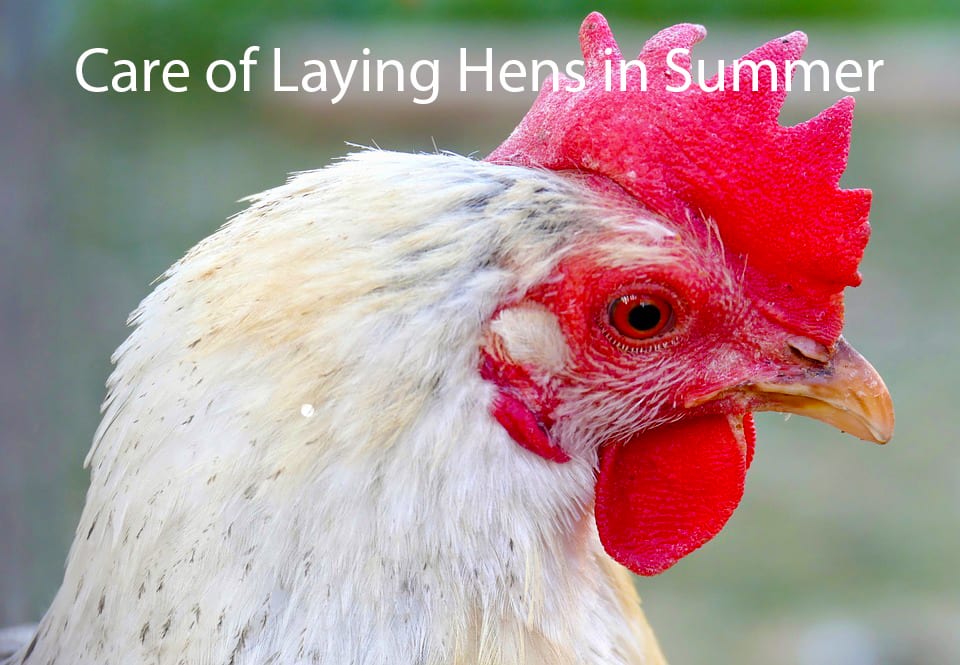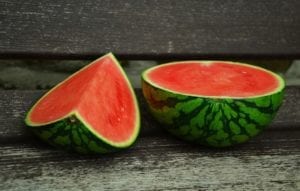
02 Nov Care of Laying Hens in Summer
It’s rather obvious – days are getting longer, temperatures are higher, air humidity increases and the Jacarandas are blooming – summer is kicking, or at least nearly is! As expected – laying hens feel it as well. A hot summer can, sometimes, be stressful for them, but there are a few things we can do to keep our laying hens cool in summer to minimise the stress and let the flow of eggs continue with no interruption.
The temperature comfort zone for layers is quite narrow. Being too cold and more so – too hot is pretty stressful for them. The immediate reaction to high temperatures is a substantial reduction of feed intake, followed by an increase in panting and drop in egg production. Laying hens become a bit ‘passive’ and tend not to move around too much when they are too hot.
At any condition and all year round, layers need a well balanced feed, which provides them with the protein, macro and micro minerals, amino acids and vitamins to maintain their good and healthy condition and continue their egg production. During the hot hours of the day, consumption of feed tends to drop, and often to totally stop. It is, therefore, very important in summer to offer them a well balanced and rich feed which will provide them with the essential amount of nutrients even when its consumption is relatively low.
There is, however, one nutrient which is sometimes taken for granted, but at the end of the day is the most important one – WATER. Birds use water to cool down when panting, and naturally need water for all other life functions and egg production. In fact, it is the single most important nutrient layers require.
It is crucial and vital to allow easy access to clean, preferably cool, water all day long – particularly in summer. Thirsty laying hens will not eat either – with obvious consequences. A typical water consumption is 2-3 times their feed consumption. On a really hot day, it can even get to four times the amount of feed consumed. Birds tend to drink less when water is warm or hot, so it is recommended to make sure that the water source is shaded and running at all times.
Since feed consumption during a hot summer day is, or can be, very low, we should encourage the laying hens to eat a bit more during the cool hours – night time. If possible, turn on the lights in the shed for 20-30 minutes at the middle of the night, and make sure they have access to feed when this happens. This midnight ‘snack’ will allow them to get some essential nutrients when they need them.
Talking about snacks – watermelon could be a good summer snack for layers. It contains a lot of water, it is red and bright and therefore extremely attractive and noticeable to birds. One can also cut watermelon into small dice, freeze them, and on a hot summer day add them to the birds’ water bowls. It will cool the water and will be pecked by the birds as well…
Adding Vitamin C is also a way to make layers a bit less susceptible to heat waves: in the morning of a particularly hot day (anticipated heat wave), it is recommended adding vitamin C to the bird’s drinking water. When you do, make sure vitamin C is added to the water in the morning so it is stable for longer and consumed almost immediately. Refer to the manufacturer recommendations on the product label for quantities etc..
A quick summary list of all points mentioned:
- Summer heat is stressful to laying hens – provide plenty of shade and space.
- Feed intake drops on hot days – feeding a good well balanced feed will help to meet nutritional requirements.
- Water is the single most important nutrient layers require and is really vital in summer.
- Allow easy and continuous access to a clean, cool water source.
- A midnight ‘snack’ can encourage birds to eat a bit more.
- Frozen Watermelon in their water bowls can help as well.
- Vitamin C in the drinking water will help birds to overcome the heat.




No Comments